CppCon 2023 Let's Fix Sparse Linear Algebra with C++. It'll Be Fun and Easy! -- Benjamin Brock
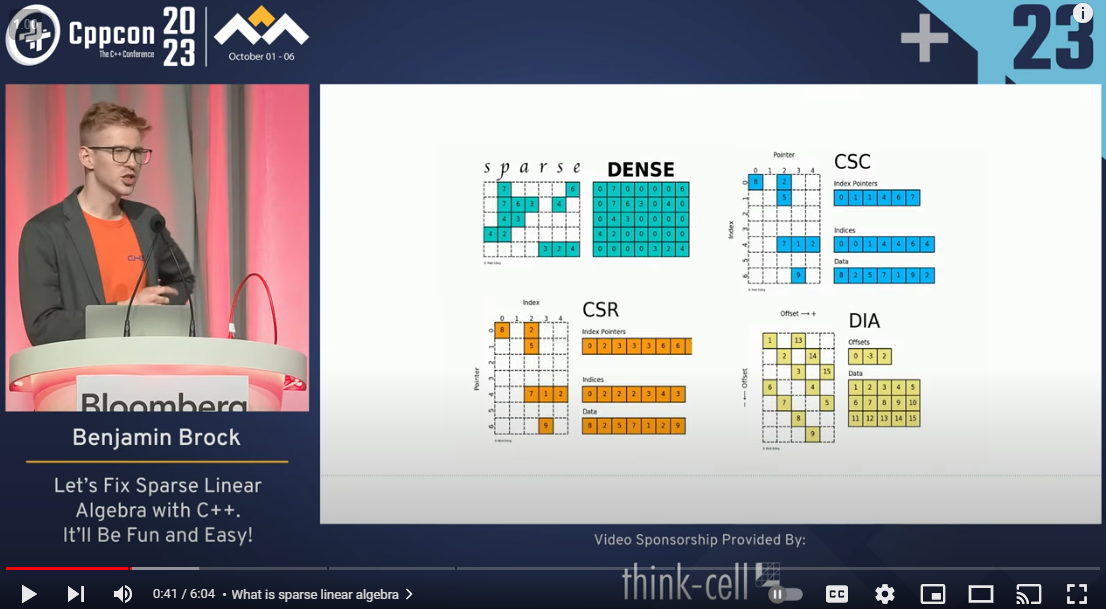 Registration is now open for CppCon 2024! The conference starts on September 15 and will be held in person in Aurora, CO. To whet your appetite for this year’s conference, we’re posting videos of some of the top-rated talks from last year's conference. Here’s another CppCon talk video we hope you will enjoy – and why not register today for CppCon 2024!
Registration is now open for CppCon 2024! The conference starts on September 15 and will be held in person in Aurora, CO. To whet your appetite for this year’s conference, we’re posting videos of some of the top-rated talks from last year's conference. Here’s another CppCon talk video we hope you will enjoy – and why not register today for CppCon 2024!
Lightning Talk: Let's Fix Sparse Linear Algebra with C++. It'll Be Fun and Easy!
by Benjamin Brock
Summary of the talk:
Sparse linear algebra is hard. There are a large variety of different sparse linear algebra formats, and they all require obtuse index arithmetic in order to use. But what if we could fix this? In this talk, I'll present an idea for "fixing sparse linear algebra" using customization points, the ranges library, and high-level multi-dimensional iteration.

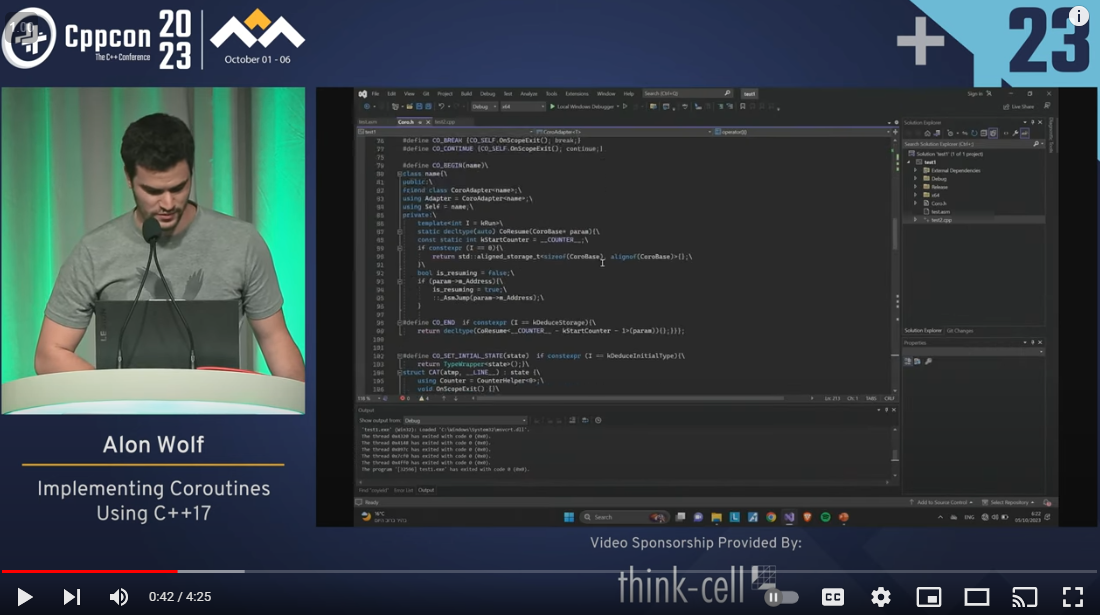 Registration is now open for CppCon 2024! The conference starts on September 15 and will be held
Registration is now open for CppCon 2024! The conference starts on September 15 and will be held  This article explores techniques to access specific elements within a C++ parameter pack by index. It delves into the use of
This article explores techniques to access specific elements within a C++ parameter pack by index. It delves into the use of 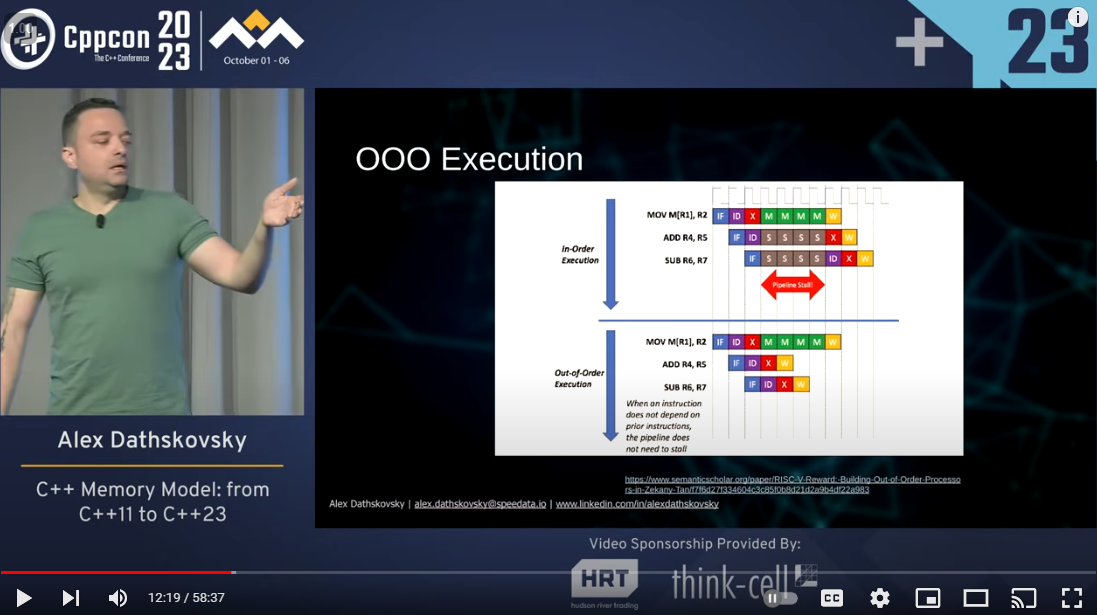 Registration is now open for CppCon 2024! The conference starts on September 15 and will be held
Registration is now open for CppCon 2024! The conference starts on September 15 and will be held 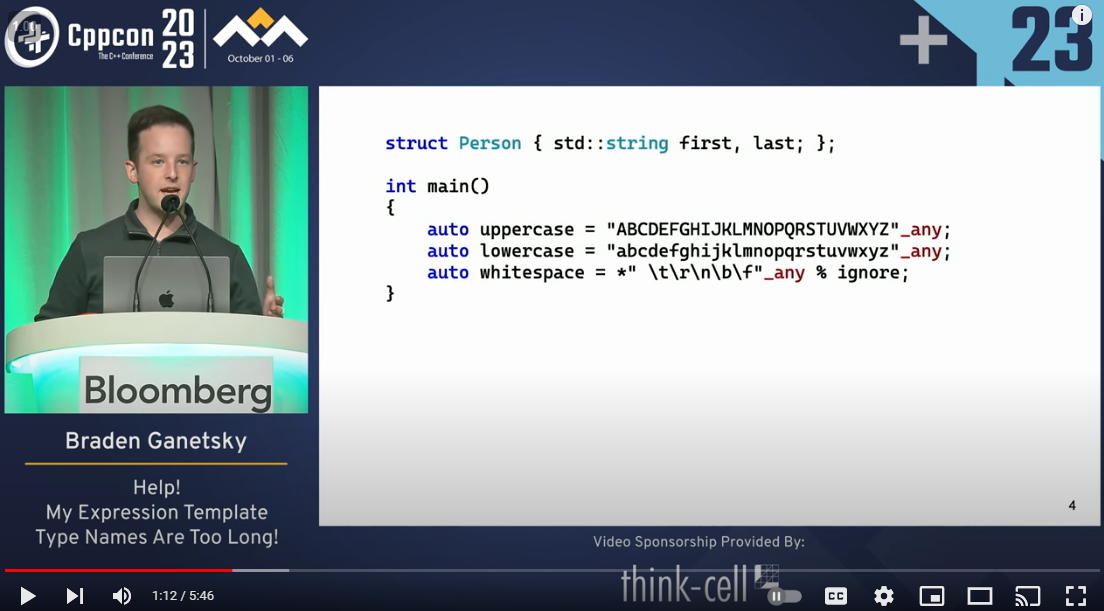 Registration is now open for CppCon 2024! The conference starts on September 15 and will be held
Registration is now open for CppCon 2024! The conference starts on September 15 and will be held 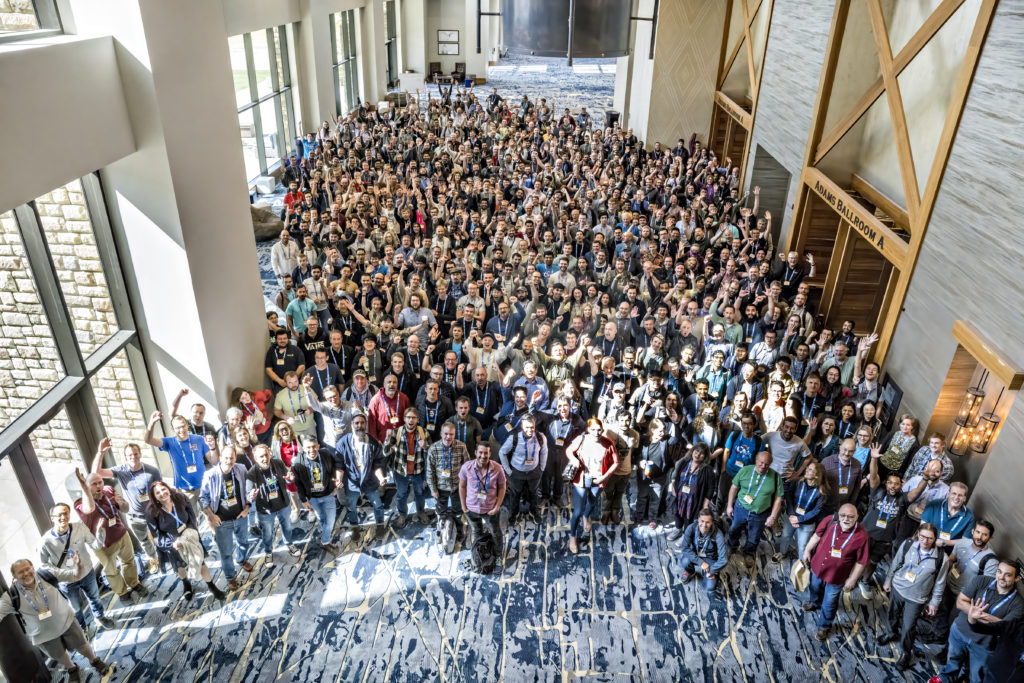 The opening keynote of
The opening keynote of 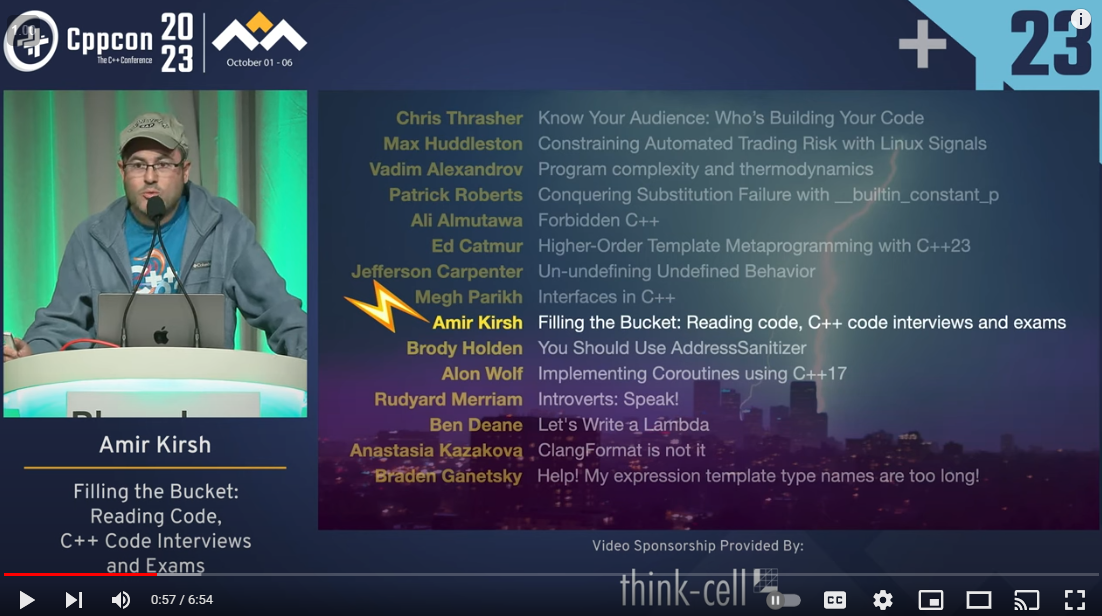 Registration is now open for CppCon 2024! The conference starts on September 15 and will be held
Registration is now open for CppCon 2024! The conference starts on September 15 and will be held 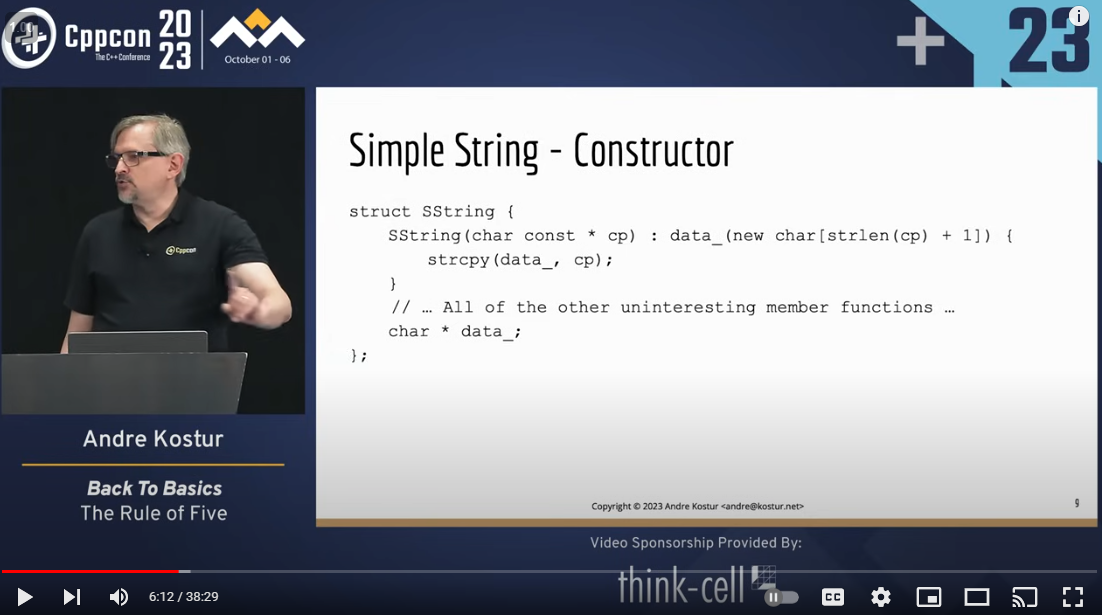 Registration is now open for CppCon 2024! The conference starts on September 15 and will be held
Registration is now open for CppCon 2024! The conference starts on September 15 and will be held